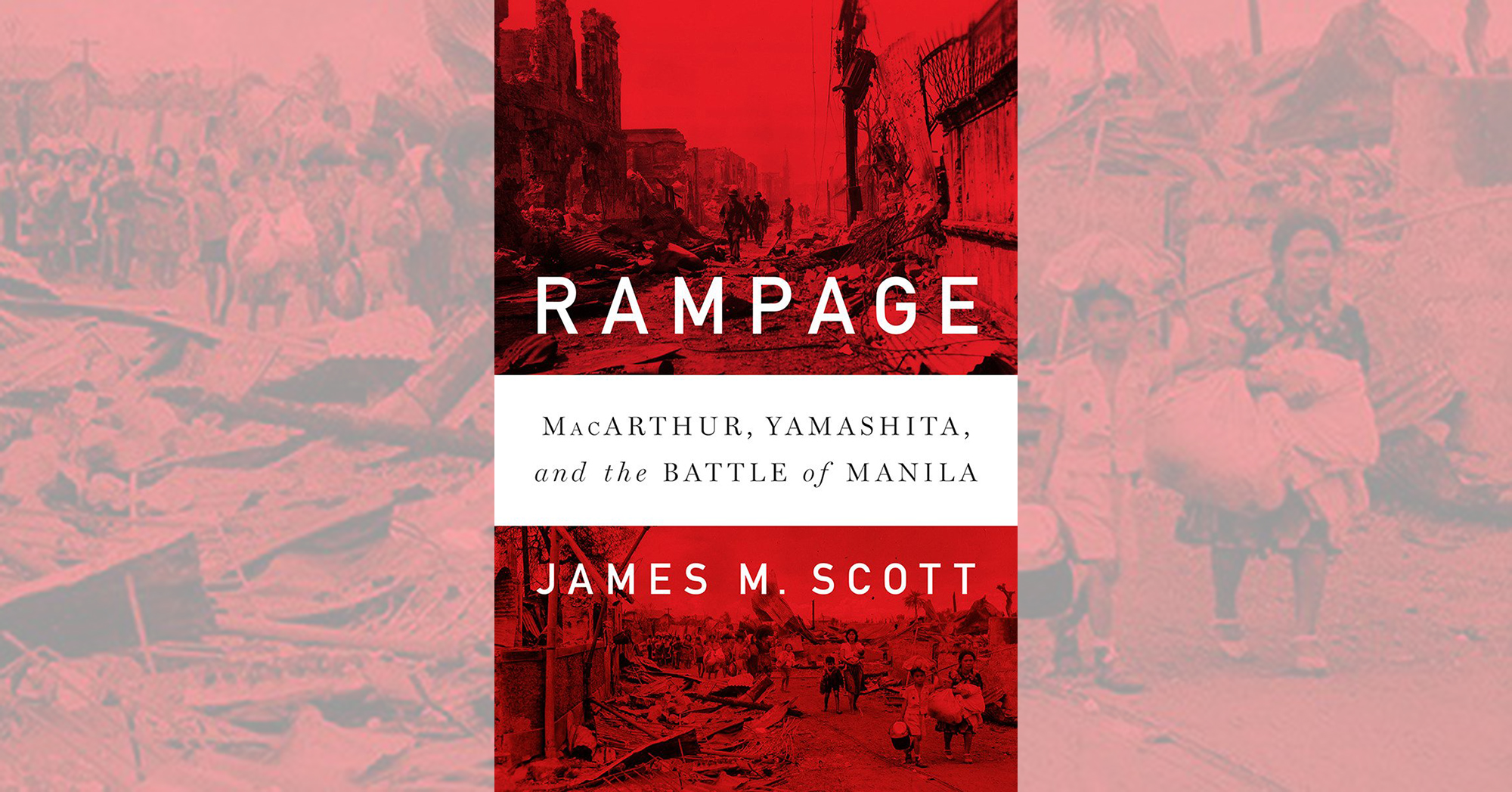Rampage: MacArthur, Yamashita and the Battle of Manila, by James M. Scott, W.W. Norton & Co., New York and London, 2018, $32.95
War is hell, and James Scott’s Rampage sears that truth deeply into the reader’s mind. The means to Scott’s end involves delving beneath the strategy, tactics and personalities behind the American recapture of the Philippines capital of Manila during World War II to emphasize the personal impact of the Japanese occupation on the citizenry. Scott also traces the personal conflict between U.S. Gen. Douglas MacArthur and Japanese Gen. Tomoyuki Yamashita, who viewed his American opponent as “a relentless commander, whose campaigns had been almost without flaw.”
Rampage begins with MacArthur’s dramatic escape from Corregidor in the early stages of the war, and it ends with Yamashita’s controversial war crimes trial and ultimate execution. In between Scott’s narrative relates the Japanese depredations against citizens. His brutally candid descriptions make reports of physical damage to the city, as well as any analysis of military strategies and tactics, seem minor in the long view of history. From the outset readers receive fair warning of the work’s shocking focus, courtesy a brief poem by an anonymous World War II prisoner: “These children of the Rising Sun, look down, dear God, on all they’ve done.”
Scott pulls no punches in his retelling of the horrific atrocities that became routine during the Japanese occupation of Manila. For example, at one point he describes the mass murder of scores of Filipino males: “Every few moments a rifle fired, and another husband, father or son tumbled down the muddy bank, swelling the pile of bodies that floated among the lily pads.” The Japanese treatment of Filipino women in captivity in Manila is arguably even more disturbing. Appropriately, Scott ends Rampage with a note of sympathy for Manila’s savaged citizens: “May they rest in peace as part now of the sacred ground of this city: the Manila of our affections.”
—Joe Callo





